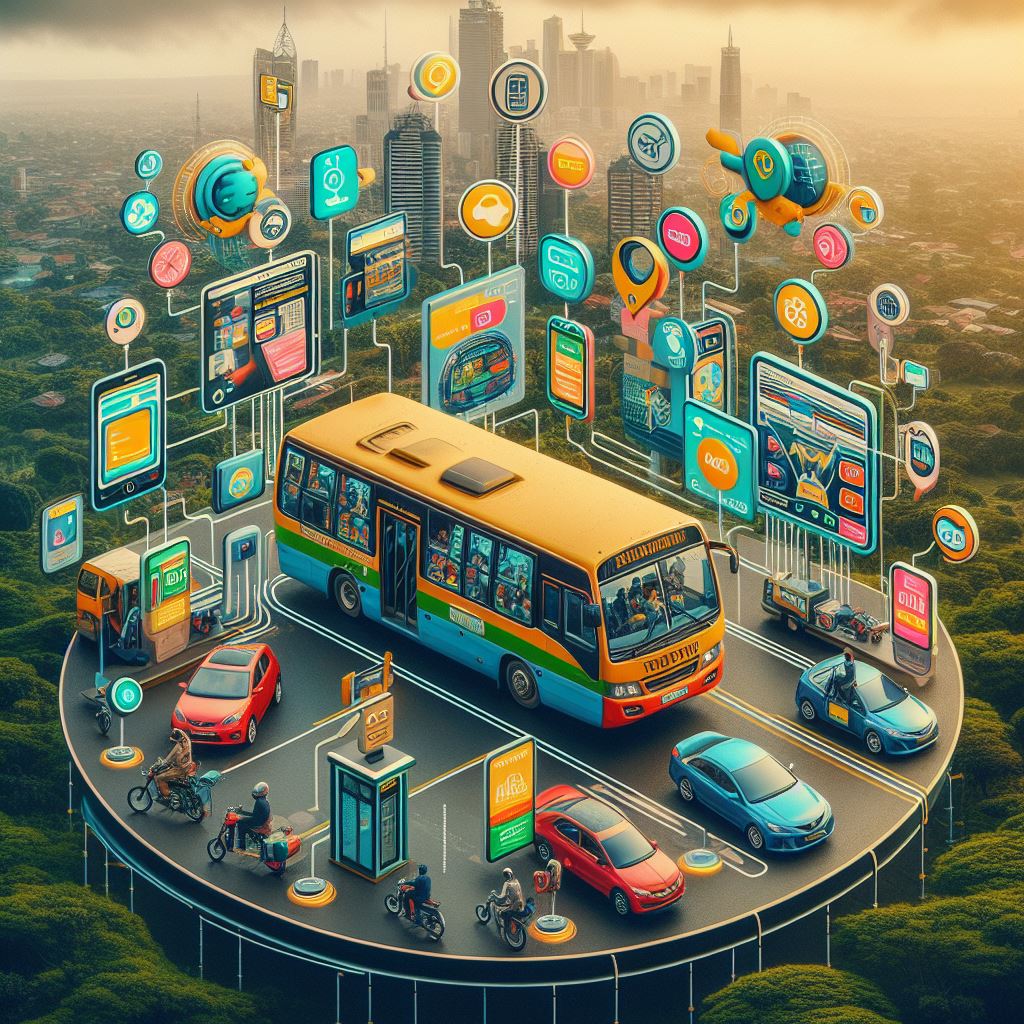Discover how the Internet is revolutionizing health and wellness in 'Wired for Wellness.' Explore the latest digital innovations, apps, and online communities transforming self-care and healthcare. Learn how connectivity is enhancing personal well-being and creating new opportunities for healthier lifestyles. Dive into the future of wellness today!
The era has brought about changes in various aspects of our lives including healthcare. The internet with its wealth of information and connectivity has played a role in transforming how we take care of our health. With the advancement of telemedicine, wearable gadgets mental health apps and online support communities our approach to well being has undergone a significant shift. This article delves into the impact of the internet on shaping the future of healthcare highlighting eight key elements driving this change.
1. Telemedicine: Access to Healthcare Anytime, Anywhere
Telemedicine has impacted on the health and well-being of people in that patients can receive medical help without having to leave the comfort of their homes especially where there is scarcity of medical practitioners. This is a crucial feature so that it is sometimes challenging for some people to access specialized medical care. The doctors can use the secure video conferencing platforms and assess, treat and follow up on patients without the need for face-to-face contact thus enhancing the patients’ health.
Telemedicine also provides time convenience to patients, as well as greatly reduces total health care expenses because of less travel and waiting at health care facilities. This cost-effective system for delivery also helps the healthcare providers to incur lower expenses from the patient’s side. It is hoped that the trend will continue as AI and other digital tools expand remote diagnosis and treatment.
2. Wearable Technology: Monitoring Heal1th in Real-Time
Devices like smartwatches and fitness trackers allow people to access real time health data including heart rate, sleep patterns and blood oxygen levels. This dynamic view of health enables user to make right decisions regarding their way of life and health. However, these devices integrate with smartphones and health apps make them even more handy, as it lets them analyze long-term health trends in order to gain better understanding of them.
Today’s wearables with more complex capabilities such as ECG and fall detection are changing the way people approach their health. These capabilities allow people to take anticipatory actions including identifying that they have an irregular hearing rate, or calling an ambulance if a fall occurs. This passivity is an enhancement in preventive health care since it allows users to notice any developing health complications and treat them before they develop into major health issues. Wearables are part of a larger trend concerning the advancement of preventive and individualized healthcare approaches.
3. Mental Health Apps: Breaking Down Barriers to Care
It may be also noted that the stigmatization of mental health issues in the society is gradually waning with the progression of the Internet and the existence of mental health applications. These technologies have enabled persons to seek help from mental health issues without necessarily disclose this to other persons hence have gone-ahead to bring closer discussions on mental health. These applications offer simple features such as guided mediations as well as complex programs such as CBT. Consequently, users can practice mental health without stigma or the obstacles which have previously been attributed to seeking help.
Mobile applications help people with mental disorders to begin their path to recovery without making them feel like they are in the hands of professionals. They enable the tracking of the user’s mood and his/her progress through the day and over time, thus providing useful feedback for the healthcare provider. It results in the increased personalization of the treatment in mental health care and improves the general therapeutic outcomes and availability of mental health resources for people who are reluctant to seek them.
4. Online Communities: Support and Connection in the Digital Age
The advancement in the internet has made health communities to be available online, where people can obtain information on different issues to do with their health. These resources include areas of discussion and forums; these are rich resource areas of shared experience and knowledge. Being a member of these communities, it is possible to find comfort and the necessary information, which reflects the participants’ real-life support systems. The feelings of togetherness and inclusion that are offered by those communities are invaluable.
Social media web sites allow people to tell their stories and seek help and support from other patients who know the challenges they are going through. It is very rare to find such kind of validation and support in traditional healthcare setting. People who attend the online health communities get support and get to learn how to handle the conditions which affect them in the best way possible. It feels like there is no community, that it is shameful to be sick and these groups help in creating togetherness and understanding.
5. Health Information at Your Fingertips: The Rise of Online Medical Resources
The internet is a valuable resource for finding information on health matters due to its convenience and availability around the clock. However, concerns about misinformation and unreliable sources persist. Reputable websites like WebMD and government health portals provide accurate medical information, ensuring credible advice. This information helps patients understand their health conditions and treatment options, enabling more productive discussions with healthcare providers. Despite these concerns, online resources remain crucial for accurate and up-to-date medical advice.
It has been an interesting shift given that the patient plays the role of the ‘player’ due to the availability of health information. By conducting simple research on the internet or access to research papers, medical journals, and experts’ opinions, people are now able to take an informed decision on their health. The above increased access to knowledge promotes the feeling of control and accountability over one’s health thus helping patients to take an active role in management of their health. Therefore, patients are able to communicate better with their doctors and are able to be involved in the process of their treatment in a more informed manner.
6. E-Pharmacies: Convenience Meets Healthcare
E-pharmacies are a revolution in the healthcare sector because it allows the patients to order prescription drugs and they will be brought to their doorstep. This flexibility is especially beneficial to individuals with chronic diseases, those with disability in mobility or for those who have a busy working schedule. It eliminates several challenges associated with delivery of treatments to patients and hence minimizes the chances of patients having to visit physical e-pharmacies.
Concerning convenience, e-pharmacies have been found to be more convenient than the traditional ones while as for price, they may have better rates that will make it easier for patients to afford medications. Other benefits of these online pharmacies is that most of them also offer a wider range of drugs than the local physical stores, making it easier for the patients to get other drugs that they would not find in their local drug store. The argument that there is increased availability and cost reduction of drugs lends to the prescription compliance since patients are likely to fill the prescriptions as required. In general, e-Pharmacies are the key to enhancing patients’ access to medicines and reducing the costs of therapy, thus promoting efficient and sustainable treatment.
7. Personalized Healthcare: Tailored Treatment Plans Through Data Analysis
Internet with big data and artificial intelligence has made the health care system to be more personalized with a new experience. Through the collation of big data accrued from wearable technology, patients’ records, and genetics, clinicians can develop individualized therapies for their patients. This approach is more complex than the previous one and considers the person’s biological predispositions, behaviors, and external conditions before providing appropriate treatment. Therefore, treatments can be made to fit each patient and his/her condition better, making the strategies that are employed in relation to healthcare more effective.
Thus, with volume of data collected increasing and with advancement in technology, the concept of personalized health care will continue to improve and will have vast potential in early detection of diseases and their management. Big data and AI help to discover the possible health problems at an early stage which makes the treatment more effective and individual. Also, extensive data analysis helps in the enhanced tracking of the treatment plans and subsequent modification to enhance a patient’s health. Lastly, this constant evolution all aims at improving the quality of care and support and is more effective and personalized healthcare models.
8. The Role of Intelligence in Healthcare: Exploring the Future of Diagnosis and Treatment
As evidenced from the following discussion, artificial intelligence AI is set to expand its influence on the different aspects of healthcare. Such tools, for example, have the capability to diagnose large sets of medical data in a manner that is faster and more accurate than a human. Also, robotics systems integrated with artificial intelligence can complete delicate operations with a great level of accuracy and are less likely to make mistakes. From the increased diagnostic accuracy and the efficiency of the procedures this technology opens the window to the improvement of the patients’ conditions and workflow within the healthcare facilities.
As for the future, let’s consider the possible use cases of AI in healthcare even broader. This could be used to provide very accurate treatment regime based on a citizen’s genetic and health profile data and making sure that the therapy being administered fits the patient perfectly. In addition, with the help of AI tools, patients could be monitored from a distance, and the information about the state of a patient could be received in real time, with necessary actions being taken immediately. It can be projected that as the technology of AI is developed further, it will change the face of healthcare delivering efficient, accessible and effective care that will be beneficial to the patient.
Conclusion
Internet has changed the approach to health and healthy lifestyles as it presents new ways of tracking, maintaining and enhancing people’s health. From telemedicine to personalized care through artificial intelligence, it helps people to be informed and be in control of their health needs where it is a matter of getting medical consultation or building a better physique.


























